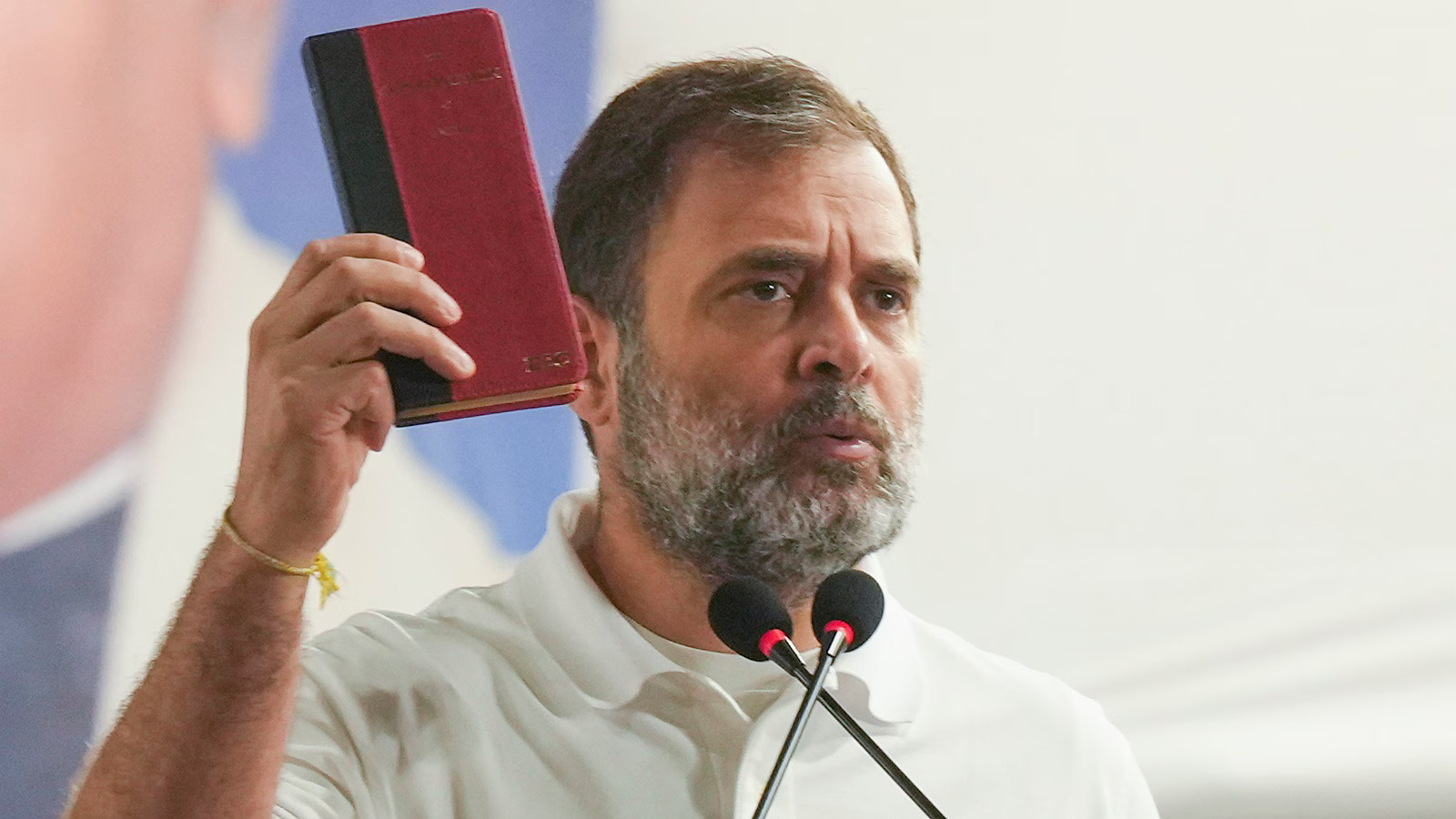Rahul Gandhi's Stand: Fighting the BJP, RSS, and the Indian State - A Divisive or Unified Front?
Burocrazy Exclusive
Congress leader Rahul Gandhi made the comments during the inauguration of Congress's new headquarters
News in Brief
Rahul Gandhi's recent statement, claiming the Congress party is not just fighting the BJP and RSS but the "Indian state" itself, has sparked significant controversy. From the Congress perspective, this is a critique of how the BJP, supported by the RSS, has allegedly manipulated democratic institutions to serve its agenda, threatening India's secular and inclusive values. The BJP, in turn, has condemned Gandhi's remarks as anti-national and divisive, accusing him of following foreign agendas. Public reactions are divided, with some seeing Gandhi's words as a call to protect democracy, while others view it as an attack on national unity. Politically, this statement may energize the Congress base but risks alienating broader voter support, intensifying polarization ahead of elections. Ultimately, the statement reignites debate about the state of India's democracy and governance.
In a recent statement, Rahul Gandhi, the Leader of Opposition in India's Lok Sabha, has made headlines by declaring that the Congress party is not merely battling the Bharatiya Janata Party (BJP) and its ideological mentor, the Rashtriya Swayamsevak Sangh (RSS), but the "Indian state" itself. This proclamation has stirred a significant amount of debate and controversy, prompting an analysis from various perspectives.
The Congress Perspective:
Rahul Gandhi's statement can be seen as a continuation of the Congress party's narrative that the BJP and RSS have systematically captured key democratic institutions, thereby undermining the constitutional framework of India. Gandhi's argument hinges on the idea that the BJP, with RSS's ideological backing, has manipulated institutions like the Election Commission, the judiciary, and the media to serve its political ambitions. His assertion that the fight is against the "Indian state" might be interpreted as a critique of the state's machinery being co-opted for partisan politics, rather than serving the nation impartially. Gandhi's words echo concerns about the erosion of democratic principles and the need to protect the secular, inclusive ethos that he claims Congress represents.
The BJP's Counter-Narrative
From the BJP's viewpoint, Gandhi's statement is not just inflammatory but borders on sedition, suggesting he is attacking the very sovereignty of India by equating the government with the state. BJP leaders have responded by accusing Gandhi of following a foreign agenda, specifically linking his comments to George Soros, implying an external influence aiming to destabilize the country. They argue that such statements are divisive, aiming to sow discord among the public and discredit the government's legitimacy. Moreover, BJP defenders maintain that their party has strengthened democracy by improving governance and transparency, countering claims of institutional capture with examples of their administration's achievements in digitalization, welfare, and economic reforms.
The BJP's critique of Gandhi's remarks points to a broader strategy of portraying the Congress's criticisms as unpatriotic or anti-national, leveraging nationalist sentiment to solidify their voter support base.
Public and Political Repercussions
Gandhi's statement has divided public opinion. On one side, it has galvanized those who feel that democracy in India is at a crossroads, with many institutions losing their independence. For these individuals, Gandhi's words are a call to action to defend democratic values. On the other side, there are those who view this as an attack on national integrity, questioning the loyalty and intentions of Gandhi and the Congress party.
Politically, this could either energize the Congress's base by framing the fight as one of existential importance for the nation's democratic soul or alienate voters who perceive such rhetoric as an assault on national unity. It also sets the stage for further polarization ahead of elections, potentially influencing how political alliances are formed or broken within the opposition's INDIA bloc.
Conclusion:
Rahul Gandhi's statement has undoubtedly reignited the debate on the health of India's democracy, the role of political ideologies in shaping governance, and the sanctity of state institutions. While it might be intended to rally support by highlighting perceived threats, it also risks being misinterpreted as an attack on the state, rather than a critique of political misuse of state machinery. As India navigates these turbulent political waters, the discourse around these comments will not only shape political narratives but also reflect on the broader conversation about what it means to fight for democracy in a deeply divided nation.
Advertise with US
Advertise with US









